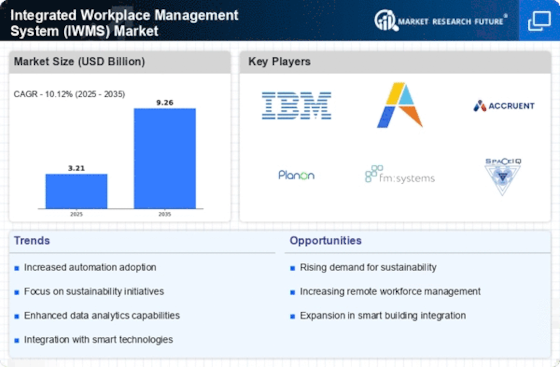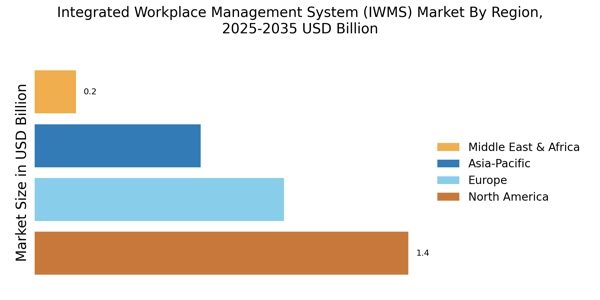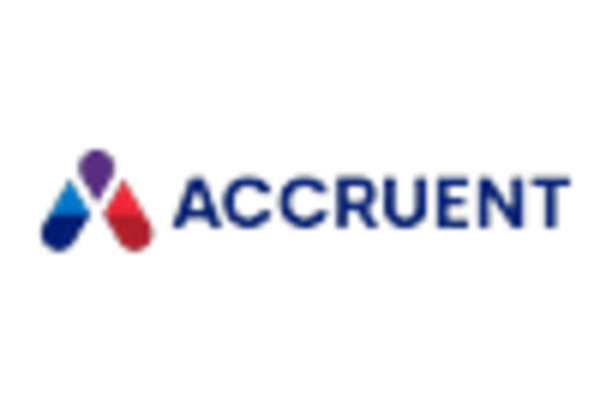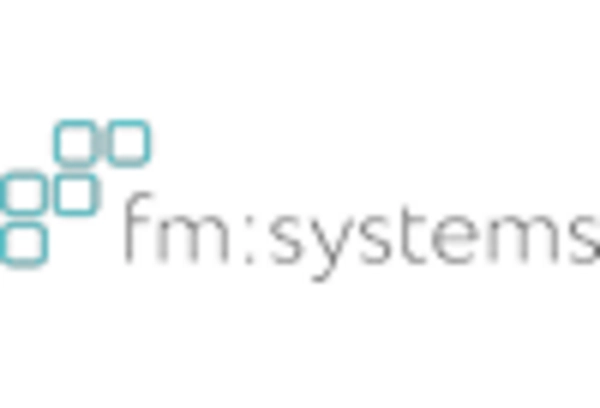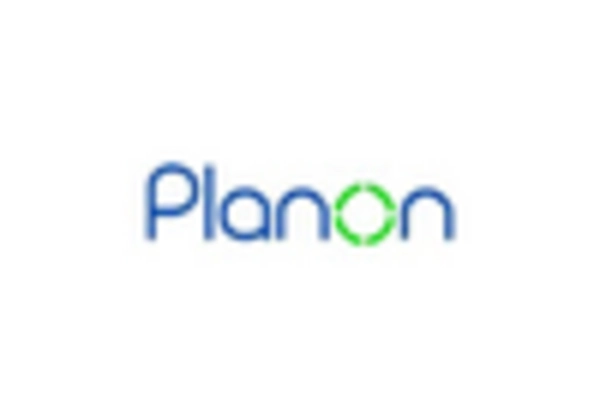Sustainability Initiatives
Sustainability initiatives are becoming a driving force in the Integrated Workplace Management System Market (IWMS) Market. Organizations are increasingly adopting IWMS solutions to support their sustainability goals, such as reducing energy consumption and minimizing waste. These systems enable companies to monitor their environmental impact and implement strategies for improvement. For instance, IWMS can help organizations achieve energy savings of up to 20% by optimizing building operations and resource usage. As sustainability becomes a core component of corporate strategy, the demand for IWMS solutions is expected to rise. This trend is likely to be further fueled by stakeholder pressure for corporate responsibility and transparency in environmental practices.
Technological Advancements
The Integrated Workplace Management System Market (IWMS) Market is experiencing a surge in demand due to rapid technological advancements. Innovations in artificial intelligence, machine learning, and the Internet of Things are transforming how organizations manage their workplace environments. These technologies enable real-time data collection and analysis, leading to improved decision-making processes. For instance, the integration of AI-driven analytics allows companies to optimize space utilization and enhance employee productivity. According to recent estimates, the IWMS market is projected to grow at a compound annual growth rate of approximately 14% over the next five years, driven by these technological enhancements. As organizations increasingly adopt smart building technologies, the IWMS market is likely to expand significantly.
Increased Focus on Operational Efficiency
In the Integrated Workplace Management System Market (IWMS) Market, there is a pronounced emphasis on operational efficiency. Organizations are continually seeking ways to streamline their processes and reduce costs. IWMS solutions provide comprehensive tools for managing space, assets, and maintenance, which can lead to substantial savings. For example, companies utilizing IWMS can reduce operational costs by up to 30% through better resource allocation and management. This focus on efficiency is further supported by the growing trend of data-driven decision-making, where organizations leverage analytics to identify inefficiencies and optimize their operations. As a result, the IWMS market is likely to see sustained growth as businesses prioritize efficiency in their workplace management strategies.
Regulatory Compliance and Risk Management
The Integrated Workplace Management System Market (IWMS) Market is increasingly influenced by the need for regulatory compliance and effective risk management. Organizations are required to adhere to various regulations concerning workplace safety, environmental standards, and data protection. IWMS solutions facilitate compliance by providing tools for tracking and managing regulatory requirements. This capability is particularly crucial in industries such as healthcare and manufacturing, where non-compliance can result in significant penalties. Furthermore, the IWMS market is projected to grow as companies recognize the importance of risk management in their operational strategies. By implementing IWMS, organizations can mitigate risks associated with workplace safety and environmental impact, thereby enhancing their overall compliance posture.
Workplace Flexibility and Employee Experience
The Integrated Workplace Management System Market (IWMS) Market is significantly shaped by the growing demand for workplace flexibility and enhanced employee experience. Organizations are increasingly recognizing the importance of creating adaptable work environments that cater to diverse employee needs. IWMS solutions facilitate this by providing tools for space management, allowing companies to create flexible workspaces that can be easily reconfigured. This adaptability not only improves employee satisfaction but also enhances productivity. Research indicates that organizations with flexible work environments experience a 25% increase in employee engagement. As the focus on employee experience continues to evolve, the IWMS market is likely to expand, driven by the need for innovative solutions that support a dynamic workplace.
.png)

